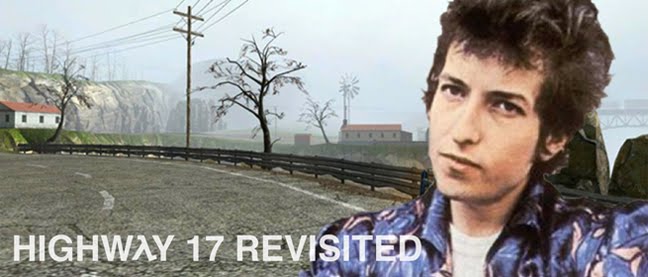Led Zeppelin were always shooting for a certain coherence to their music and image, one that mashed up The Lord of the Rings, celtic mysticism, British folk, and American blues, and then injected a large dose of testosterone. The pinnacle of that aim is Led Zeppelin IV, the pioneering quartet's finest long-player. IV doesn't fool around; it lets know right off the bat that you're in for a wild ride. Say what you want about Zeppelin, nobody can deny their beastly prowess as musicians.
On the opener, "Black Dog", the group plays with tension and release to great effect; Robert Plant sings a phrase a cappella before Page and Bonham come thundering in to fill up the empty space with their monstrous riffing. The appropriately named "Rock and Roll" approaches tension through the monotonous pounding of a single piano key. Instead of building a subtle sense of unease, as in The Stooges' "I Wanna Be Your Dog", this one-note assault simply adds to the atmosphere of lustful, liberated fury.
Things take a turn for the fantastical as we step onto the mandolin-swept fields of "The Battle of Evermore." The Tolkein continues on the legendary "Stairway to Heaven." Look, I know there are quite a few folks who never want to hear this thing again, but blame the DJs for the overkill; "Stairway" wasn't even released as a single. Look past the druid kitsch and radio overplay and you've got an exemplary exercise in pacing. The song fluidly transforms itself throughout, from the opening's flute and acoustic guitar to the finale's triumphant, hard-rocking perfection. That guitar solo is still my all-time favorite: inspired, melodic, sensational, memorable, rewarding, utterly correct.
There may not be many deep themes on IV, but, if anything, it paints an honest picture of the early 70's, rampant with sex, drug use, liberalism, and "Misty Mountain Hop"'s "Crowds of people sitting on the grass with flowers in their hair." And, lest you think Led Zeppelin are all brawn and no heart, we have sentimental strummers like the wistful "Going to California" to prove you wrong.
Still, as nice as it is to get some relief from all the barnstorming, Zeppelin are at their best when they're bringing down the house. Nowhere is this more evident than on the re-appropriated blues closer, "When the Levee Breaks". Possibly the greatest song the band ever produced, "When the Levee Breaks", powered by John Bonham's impossibly titanic--and oft-sampled--beat (achieved by playing the kit at the bottom of a stairwell, with two microphones at the top) and Plant's backwards echo harmonica wail, stomps forward with all the might of the tempest it describes. There's a moment from about 2:25 to 2:50 where Jimmy Page's guitar surges upward heroically, Bonham's cymbals crash about, and Plant half-screams "Don't it make you feel bad when you're trying to find your way home, you don't know which way to go?!" It's awesome, and it does what rock & roll was always meant to do: make you feel alive.
Actually, that last sentence is pretty much this album in a nutshell. \m/

